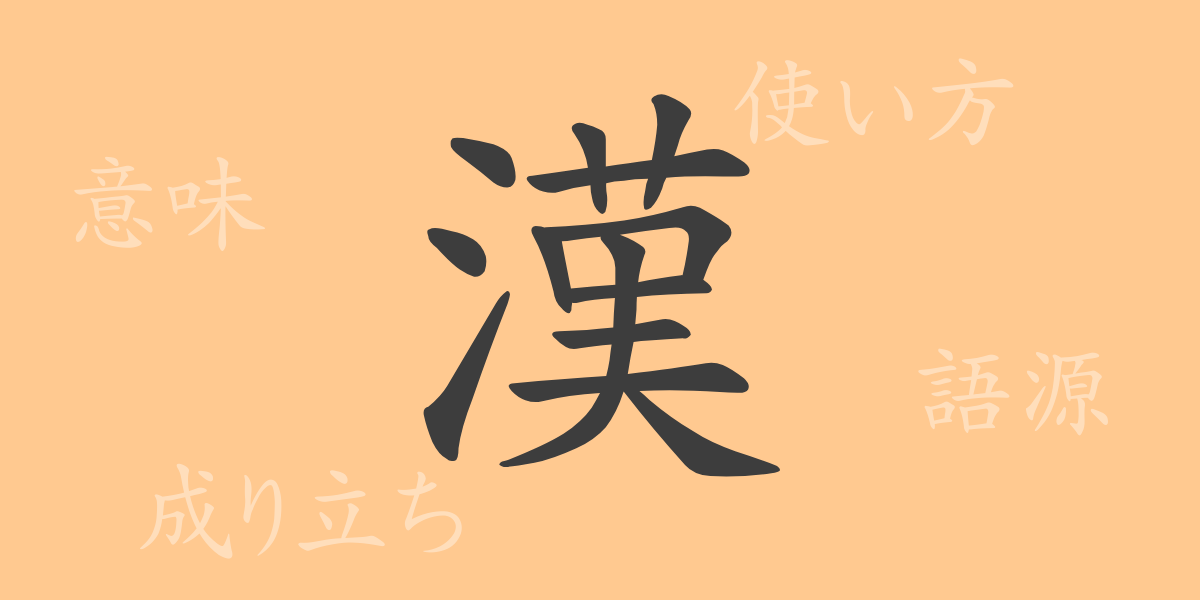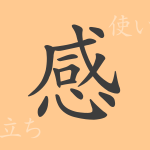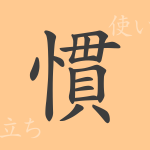The rich world of expression in the Japanese language is home to a multitude of kanji characters. Among them, the character “漢” (Kan) is deeply rooted in our lives as one of Japan’s commonly used kanji. In this article, we’ll delve deeply into the history, meaning, and usage of the “漢” character. Let’s unravel the culture and history encapsulated within a single kanji character and explore its charm.
The Origins of 漢 (Kan)
The character “漢” (Kan) holds significant meaning in Chinese history. This kanji originates from the Han Dynasty, an ancient state in China. The Han Dynasty spanned from 206 BCE to 220 CE, leaving a long and influential history on Chinese culture and systems. The character “漢” is formed from the “水” ( mizu) radical, representing rivers or streams, combined with “几,” which conveys strength and magnitude. This reflects the dynasty’s namesake, the Han River, a major river flowing through the heart of China.
Meanings and Usage of 漢 (Kan)
The character “漢” has several meanings. The most common is to represent “man” or “brave,” conveying masculinity. It is also used to refer to the Chinese people and countries within the kanji cultural sphere. Additionally, it appears in specific place names and personal names. In terms of usage, it is often used as an adjective or noun; when referring to a man, it is used adjectivally as in “漢らしい” ( otoko-rashii, manly), and when referring to a place name or ethnicity, it is used as a noun, as in “漢民族” ( Kan Minzoku, Han ethnicity).
Reading, Number of Strokes, and Radical of 漢 (Kan)
In Japan, the character “漢” has a unique pronunciation and way of writing.
- Reading: On’yomi (Chinese reading) is “Kan”, no Kun’yomi (Japanese reading)
- Number of Strokes: 13 strokes in total
- Radical: 水 ( mizu, sanzui)
Idioms, Phrases, and Proverbs Using 漢 (Kan) and Their Meanings
There are many idioms, phrases, and proverbs in Japanese that include the character “漢.” For example, “漢気” ( otokogi) expresses manliness or courage, “漢学” (kangaku) refers to the study of Chinese classics, and “漢詩” ( kanshi) denotes poetry that adopts the style of Chinese poems. The proverb “十人十色” ( junin toiro) means “to each their own” or “everyone has their own tastes and ideas,” and sometimes the “人” ( hito) in this phrase is written as “漢.” These expressions demonstrate the significant role the character “漢” plays within the Japanese language.
Conclusion on 漢 (Kan)
Through this article, we have gained an understanding of the deep meanings and historical background embedded in the character “漢.” It is clear that it is used not only to refer to men but also in a wide range of applications including culture, scholarship, and even proverbs that express individuality. Learning about the rich expressive power of each kanji character is key to deepening our understanding of the Japanese language and enhancing our ability to use words more richly.

























